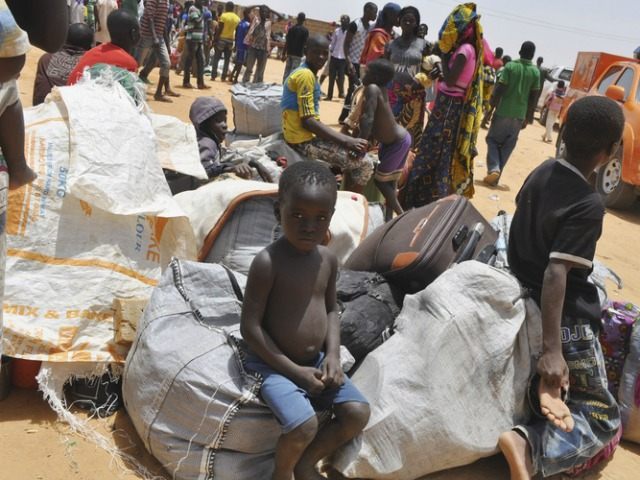Over 11,000 Nigerians have returned from Niger since fleeing radical Islamist group Boko Haram. The majority of those fleeing previously lived in areas Boko Haram terrorized the most.
“Transportation of the returnees continues as more high capacity buses and vehicles have been engaged by NEMA to fully transport them to their various states even as the agency is also continuing with the provision of basic supports at the transit camp,” stated the National Emergency Management Agency (NEMA).
The statement, signed by press officer Ezekiel Manzo, reported a total of 11,449 Nigerians returning to the country, 7,000 of whom returned to their original states, which include Borno and Yobe. The federal government sent humanitarian aid to help the returning refugees.
NEMA also reported that five babies were born in three days in refugee camps in Sokoto state. The Nigerian army recently rescued these new mothers, along with hundreds of others from Boko Haram camps. About 700 women were rescued, over 200 of them “visibly pregnant.” The terrorist group has kidnapped over 2,000 women in the past five years, attempting to establish its own Caliphate. Human rights organizations claimed the militants raped and sold the women into sex slavery, which led to fears of future terrorism in Nigeria.
“I am seriously worried with the fact that most women tend to hate and abandon children they deliver from rape,” said Borno state Governor Kashim Shettima. “Now, the problem is that these children could go to the streets unattended to, they then lack access to food, health care and education. The result is that they could indeed inherit their fathers’ (ideology) somehow.”
Over the weekend, Niger started to deport the Nigerian refugees. Over 50 died on the way out from lack of food and water.
“I counted over 50 people that died on our way out of (the town of) Lalewa when the Niger soldiers were chasing us as if we are animals,” recounted one refugee.
Others said the officials told them to leave, and provided no time to collect their belongings. Niger did alert Nigerian officials, who drove trucks to the border to pick up the refugees. But many died during the three-day walk to the border, including a woman with her newborn twins.
“There was no water,” cried Auwal, 22. “It was very hot. They collapsed and died. Nobody had any energy left to help them and we just had to leave them in the bush.”

COMMENTS
Please let us know if you're having issues with commenting.